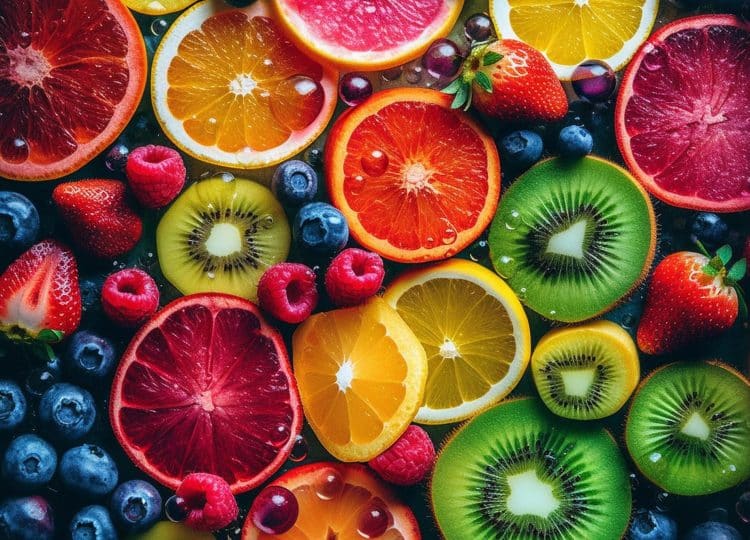The concept of fasting is not new to humankind and has prevailed for centuries. Originally, fasting was practiced for religious purposes or cultural beliefs; recently, it has become a new age weight-management tool that advocates its benefits on health conditions like managing blood sugar, stimulating metabolism, reducing inflammation, and promoting brain health.
While researching intermittent fasting, I came across the term “dirty fasting.” It got my interest as it seemed like a more flexible fasting approach. After more than 40 hours of research on dirty fasting, I have put together this article.
If you struggle to follow traditional intermittent fasting rules, you can explore dirty fasting to see if it is the right fit for you.
Join me on this journey as we explore how dirty fasting can transform your relationship with food and empower you to achieve your health goals.
So, let’s get started!
What is Intermittent Fasting?
Level Up Your Fitness: Join our 💪 strong community in Fitness Volt Newsletter. Get daily inspiration, expert-backed workouts, nutrition tips, the latest in strength sports, and the support you need to reach your goals. Subscribe for free!
Before we delve into dirty fasting, let’s first understand what precisely intermittent fasting is. Intermittent fasting involves cycling between voluntary fasting periods and designated eating times.
Intermittent fasting is of several types, such as:
- Time-restricted eating (TRE): This includes consuming calories within a specific period or eating window. For example, the 16:8 method, in which you fast for 16 consecutive hours and then eat during an eight-hour window. (1)
- Alternate day fasting (ADF): It involves fasting every other day and eating normally on the other days. However, you may eat a maximum of 500 calories on the fasting days. (2)
- 5:2 method: This method includes fasting for two non-consecutive days in a week. During the fasting days, you can eat a maximum of 500 calories.
Intermittent fasting has grown in popularity in the last decade because of its various health benefits, including improved metabolism, increased autophagy, better brain function, regulated blood sugar level, improved heart health, and many more.
Now that we’ve become familiar with intermittent fasting let’s understand dirty fasting. It is a modified type of intermittent fasting that allows some caloric intake during the fasting window.
What is Dirty Fasting?
Dirty fasting allows for the consumption of some calories during the fasting window. Dirty fasting completely differs from clean fasting, which restricts you from consuming even a few calories.
People who incorporate dirty fasting into their intermittent fasting regimen typically consume up to 100 calories during their fasting period. This may include adding milk to their coffee or consuming bone broth. They can even consume one tablespoon of maple syrup or honey, one tablespoon of cream, stevia, aspartame, sugar-free lemonade, MCT oil, etc., during their fasting window.
People who follow dirty fasting believe that a small number of calories does not technically break a fast; moreover, this kind of fasting helps them maintain a fasting schedule as it is easier than clean fasting.
However, there is no established definition of dirty fasting. When discussing dirty fasting, we must understand that this is not a medical term. Hence, some people may consume more than 100 calories while others may consume fewer during a dirty fast.
Pros and Cons of Dirty Fasting
Here are some pros and cons of dirty fasting, providing insights to help you make well-informed choices. Recognizing your individual body needs will help you assess if dirty fasting aligns with your fasting goals.
Pros of Dirty Fasting
Just like other forms of fasting, dirty fasting has the following benefits:
- Helps promote mindful eating by cultivating an awareness of your food choices.
- May promote weight loss or fat loss since you will be eating fewer calories than usual.
- Helps control hunger throughout your fasting regimen.
- Prevents the onset of fatigue.
Cons of Dirty Fasting
As per some experts, consuming fewer than 100 calories in your fasting window does not affect your weight loss goal. However, if you consume more calories outside your chosen eating window or if you consume unhealthy and processed foods, you may encounter the following downsides:
- Due to a lack of guidelines in this fasting plan, you may end up consuming more than 100 calories. This may hamper your weight loss plans and may even result in weight gain.
- Might delay ketosis.
- You may experience instabilities in your blood sugar levels.
Read the comprehensive comparison between Clean vs. Dirty Intermittent Fasting here.
Is Dirty Fasting Effective?
Since traditional fasting methods such as alternate day fasting (ADF) or time-restricted feeding (TRE) involve complete abstinence from calories for long hours per day, these methods are beneficial for fat loss, improved blood lipid levels, reduced blood glucose and blood pressure, and much more. (3) (4) (5) (6)
Moreover, modified alternate-day fasting can be beneficial for weight loss and improved NAFLD (non-alcoholic fatty liver disease). (7)
Level Up Your Fitness: Join our 💪 strong community in Fitness Volt Newsletter. Get daily inspiration, expert-backed workouts, nutrition tips, the latest in strength sports, and the support you need to reach your goals. Subscribe for free!
Since dirty fasting does not have any set rules, people who follow it may consume more than 100 calories in their fasting window. This may harm their weight loss journey. It is still unclear if dirty fasting could be beneficial compared to other methods of fasting with strict regulations.
Most people who follow dirty fasting seek the health benefits of strict calorie restriction. They say that consuming some calories helps them stay on track because they do not feel hungry throughout their fasting period. Moreover, dirty fasting can help prevent overeating, maintain an unswerving eating schedule, and eat mindfully.
If you are on a clean fasting diet or significantly cutting down your calorie intake, you may experience weight loss along with other health benefits such as improved metabolism and enhanced insulin sensitivity. Additionally, restricting calories can stimulate autophagy, a self-induced cellular repair process that can help slow aging and enhance longevity. (8)
If weight loss is your only focus, then dirty fasting can help. However, if you intend to go on ketosis or high-efficiency fat-burning, then dirty fasting may not be of any help. Also, there is no evidence that dirty fasting can effectively promote processes like enhanced autophagy, improved immunity, better cognition, and increased longevity that usually occur during traditional fasting.
Although dirty fasting may promote fat loss and weight loss, clean fasting may be more effective. It is because, no matter how small your calorie intake, you are still providing your body with some calories, which eventually breaks your fast.
How To Do Dirty Fasting?
If you wish to follow dirty fasting, aim to consume only 100 calories within your fasting window. This may include having a cup of coffee with a small amount of milk, a cup of bone broth, a small serving of protein powder with almond milk, a small serving of yogurt, or a piece of fruit.
Here is a list of some foods to consume while dirty fasting:
- Fresh fruits such as kiwi, berries, apricots, all types of citrus fruits, etc.
- Non-starchy vegetables include broccoli, cauliflower, leafy greens, mushrooms, green beans, etc., since these are high in essential vitamins, minerals, and fiber. Additionally, they control your hunger.
- Sea vegetables, herbs, spices, cocoa, etc., as these are rich in antioxidants.
- Probiotics that include yogurt, kefir, sauerkraut, etc.
- Healthy fats such as nuts and seeds, olive oil, MCT oil, coconut oil, etc.
- Proteins such as grass-fed meat, free-range eggs, and wild-cut fish.
- Bone broth, herbal tea, seltzer, coffee, water, stevia added zero caloric drinks, etc.
While following the dirty fasting approach, you should stay within the 100-calorie mark during your fasting window. Hence, you need to ensure that whatever foods or drinks you choose, you are not exceeding your calorie limit.
Should You Try Dirty Fasting?
If you wish to go for intermittent fasting, it is always recommended to choose a fasting plan that is backed by research. For example, you may choose to follow a 16:8 method, where you have to fast for 16 consecutive hours and eat within the remaining eight-hour window, or an alternate day fasting (ADF) method, where you have to fast every alternate day. (9)
Though dirty fasting is not backed by any research, some people might find it beneficial and easy to follow due to its flexibility. Hence, people who practice dirty fasting technically may not be in a fasted state during their fasting windows, specifically if they ingest more calories than they realize.
The only way to ensure being in a fasted state is to abstain from calories completely. However, as per many experts, consuming small amounts of calories, such as having black coffee or green tea, does not affect your fasting regimen. (10)
It is important to remember that fasting is not appropriate for everyone. Children, pregnant and breastfeeding women, people with pre-existing diseases and under certain medications, people with eating disorders, and underweight people should refrain from any type of fasting. (11)
Frequently Asked Questions
What is considered a dirty fast?
Dirty fasting is a modified form of intermittent fasting that allows consuming some calories within the fasting window. This differs from clean fasting, which completely restricts calorie intake. People who practice dirty fasting can consume up to 100 calories during their fasting period.
Is dirty fasting beneficial?
Dirty fasting may have some health benefits like traditional fasting. It may result in weight loss but may not offer other benefits such as improved metabolism, increased autophagy, better cognition, improved insulin sensitivity, and reduced blood pressure.
Is dirty fasting still fasting?
There is no established definition of dirty fasting. However, it is a type of modified fasting since it involves consuming a small amount of calories during the fasting period.
Does lemon water break a fast?
Since lemon water contains few calories, it is considered a non-caloric beverage and is unlikely to break your fast. To know more, read – Lemon Water and Fasting.
Conclusion
Dirty fasting allows you to consume a small number of calories during your fasting period. Although the supporters of the method advocate that sticking to this form of fasting is way easier, it might not align with the traditional definition of fasting. Consuming more than 50 calories can potentially disrupt your fasting state.
To attain the maximum benefits of fasting, it is essential to follow clean fasting, where you consume no calories during your fasting window. Furthermore, clean fasting is much more beneficial than dirty fasting. So, if you can fast longer, clean fasting would be a better option.
However, beginners should start with a smaller fast and slowly increase the period as they gain more experience. For example, you can start with 12 hours of fasting and gradually increase the duration. If you have any health condition or are under any medication, it is always recommended to speak to your healthcare provider before starting a new diet.
References:
- Paoli, A., Tinsley, G. M., Bianco, A., & Moro, T. (2019, March 28). The Influence of Meal Frequency and Timing on Health in Humans: The Role of Fasting. Nutrients.
- Cui Y, Cai T, Zhou Z, Mu Y, Lu Y, Gao Z, Wu J, Zhang Y. Health Effects of Alternate-Day Fasting in Adults: A Systematic Review and Meta-Analysis. Front Nutr. 2020 Nov 24;7:586036. doi: 10.3389/fnut.2020.586036. PMID: 33330587; PMCID: PMC7732631.
- Regmi, P., & Heilbronn, L. K. (2020, June 1). Time-Restricted Eating: Benefits, Mechanisms, and Challenges in Translation. iScience.
- Moro T, Tinsley G, Bianco A, Marcolin G, Pacelli QF, Battaglia G, Palma A, Gentil P, Neri M, Paoli A. Effects of eight weeks of time-restricted feeding (16/8) on basal metabolism, maximal strength, body composition, inflammation, and cardiovascular risk factors in resistance-trained males. J Transl Med. 2016 Oct 13;14(1):290. doi: 10.1186/s12967-016-1044-0. PMID: 27737674; PMCID: PMC5064803.
- Wang Y, Wu R. The Effect of Fasting on Human Metabolism and Psychological Health. Dis Markers. 2022 Jan 5;2022:5653739. doi: 10.1155/2022/5653739. PMID: 35035610; PMCID: PMC8754590.
- Cui, Y., Cai, T., Zhou, Z., Mu, Y., Lu, Y., Gao, Z., Wu, J., & Zhang, Y. (2020, November 24). Health Effects of Alternate-Day Fasting in Adults: A Systematic Review and Meta-Analysis. Frontiers in Nutrition.
- Johari MI, Yusoff K, Haron J, Nadarajan C, Ibrahim KN, Wong MS, Hafidz MIA, Chua BE, Hamid N, Arifin WN, Ma ZF, Lee YY. A Randomised Controlled Trial on the Effectiveness and Adherence of Modified Alternate-day Calorie Restriction in Improving Activity of Non-Alcoholic Fatty Liver Disease. Sci Rep. 2019 Aug 2;9(1):11232. doi: 10.1038/s41598-019-47763-8. Erratum in: Sci Rep. 2020 Jun 25;10(1):10599. PMID: 31375753; PMCID: PMC6677794.
- Bagherniya, M., Butler, A. E., Barreto, G. E., & Sahebkar, A. (2018, November 1). The effect of fasting or calorie restriction on autophagy induction: A review of the literature. Ageing Research Reviews.
- Jamshed, H., Beyl, R. A., Della Manna, D. L., Yang, E. S., Ravussin, R., & Peterson, C. M. (2019, May 30). Early Time-Restricted Feeding Improves 24-Hour Glucose Levels and Affects Markers of the Circadian Clock, Aging, and Autophagy in Humans. Nutrients.
- Templeman I, Thompson D, Gonzalez J, Walhin JP, Reeves S, Rogers PJ, Brunstrom JM, Karagounis LG, Tsintzas K, Betts JA. Intermittent fasting, energy balance and associated health outcomes in adults: study protocol for a randomised controlled trial. Trials. 2018 Feb 2;19(1):86. doi: 10.1186/s13063-018-2451-8. PMID: 29394908; PMCID: PMC5797418.
- Soliman GA. Intermittent fasting and time-restricted eating role in dietary interventions and precision nutrition. Front Public Health. 2022 Oct 28;10:1017254. doi: 10.3389/fpubh.2022.1017254. PMID: 36388372; PMCID: PMC9650338.
Article Updates Timeline:
Our editorial team experts constantly update the articles with new information & research, ensuring you always have access to the latest and most reliable information.
December 27, 2023
Updated By
Dr. Rashmi Byakodi
December 20, 2023
Written By
Dr. Rashmi Byakodi
Fact Checked By
Dr. Malik














